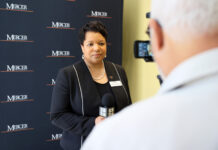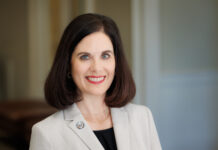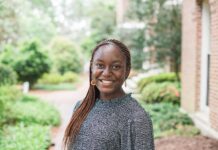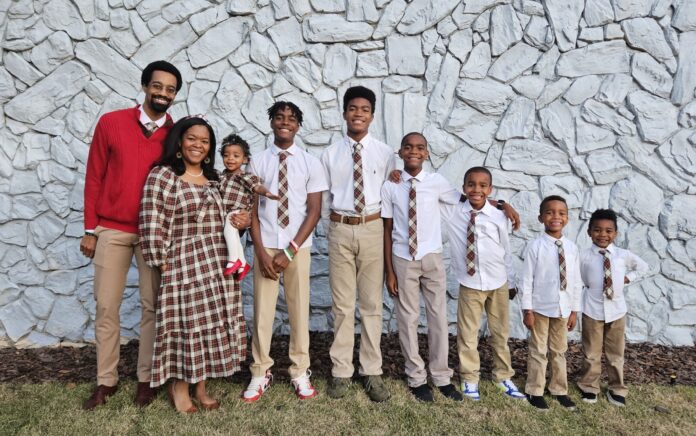
Dr. Leighton Elliott decided to become a doctor after participating in a Mercer On Mission trip to Vietnam. As an oncologist at the University of Florida Health today, he is part of a research team that’s developing innovative treatments for adolescents and young adults with rare cancers.
Dr. Elliott, who grew up in southwest Florida, chose Mercer University for his undergraduate education because of its well-established biomedical engineering program and smaller class sizes. He joined the men’s basketball team as a walk-on and got involved in Student Government Association, intramural sports and Greek life.
“I relish my time at Mercer. It was phenomenal. All my best friends are still from Mercer,” said Dr. Elliott.
Dr. Ha Van Vo, biomedical engineering professor and director of the Mercer On Mission Vietnam program, served as a mentor and an inspiration to Dr. Elliott when he was a student.
Dr. Elliott was part of the first Mercer On Mission team that traveled with Dr. Vo to Vietnam in 2009, when they fit about 35 amputees with prosthetic limbs. Dr. Elliott also had the opportunity to do prosthetics work in Haiti with Dr. Vo and a handful of other students. Fifteen years later, Mercer’s prosthetics program has grown tremendously, and more than 21,000 amputees have been fit with prosthetic legs and hands.
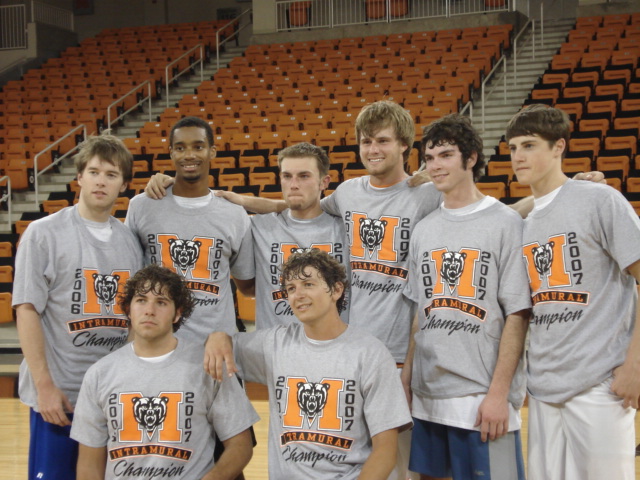
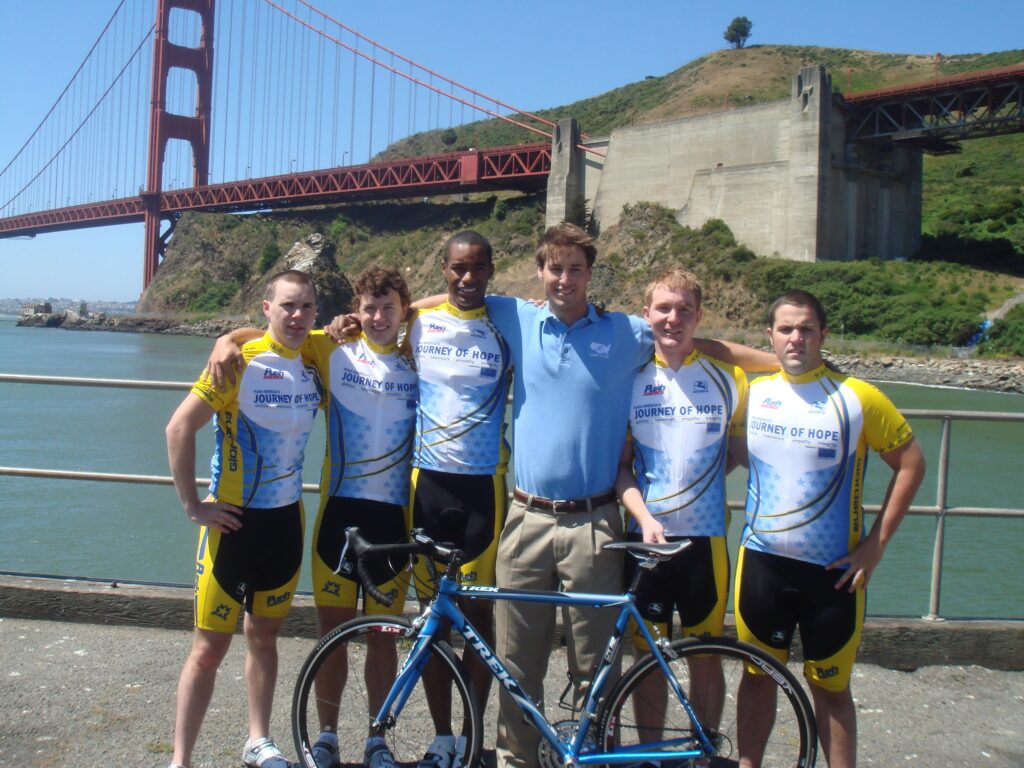
“(Dr. Vo) was a role model for me in seeing that when things look impossible, you can get things done. You just have to work hard. He is by far one of the most influential people in my life,” Dr. Elliott said. “Just seeing the way he is so compassionate and altruistic. He just kind of gave all of himself to people. He would continue to see (patients) from sunup to sundown and never complained once. And I thought to myself, ‘That’s what I want to do. I want to be that person.’”
Dr. Elliott’s experience in Vietnam changed the trajectory of his life. He embarked on the trip with plans to pursue a biomedical engineering career and discovered a passion for interacting with patients.
His first child with wife Mairee, a 2009 Mercer graduate, was born two weeks early while Dr. Elliott was in Vietnam. The couple now has seven children, ranging in age from 1 to 15.
Dr. Elliott said he woke up one morning while in Vietnam to find a blurry picture of his new son on his Playstation Portable. He was distraught to have missed the birth, but he soon picked himself up. He realized that a healthy baby was a reason to celebrate and that he needed to get back to work because there were people in Vietnam who needed him. He reflected on this during his travels back home and felt that God was calling him to a new path.
“That sort of started to change my mindset, and I realized I need to be a doctor,” he said. “I couldn’t get that out of my head. That’s what I wanted to do.”
Dr. Elliott completed his bachelor’s degree in engineering in 2010 and his master’s the following year at Mercer. Getting into medical school proved to be a challenge, until Dr. Elliott found the support and encouragement of Dr. W. Douglas Skelton, dean of Trinity School of Medicine in Saint Vincent and the Grenadines in the Caribbean, a Mercer alumnus and former Mercer School of Medicine dean.
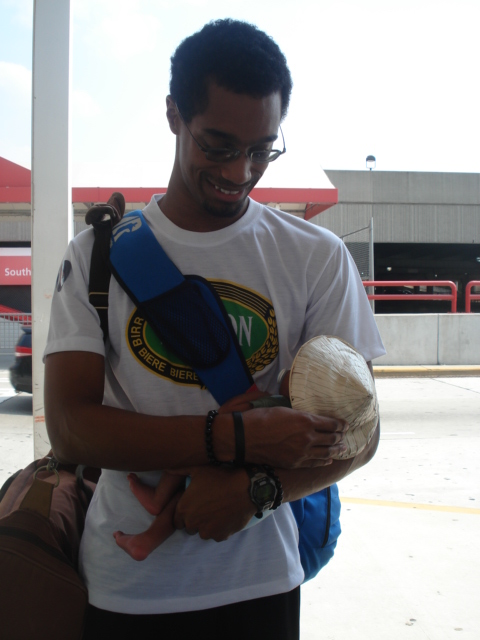
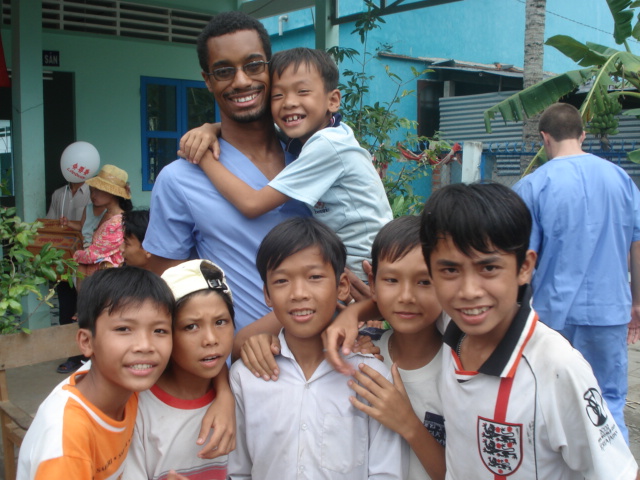
“I went to this little island in the middle of the Caribbean with my wife and three kids. We had never left the country before, so this was all new to all of us. It was a major challenge, but we persevered together,” he said.
Dr. Elliott said his Mercer experience built his character and helped him persevere through the hardships.
“Those opportunities really helped me to grow as a leader to be able to be a better physician and know how to start projects and get them done and how to deal with working in teams,” he said. “Being an engineer is a huge part of that. When we’re thinking about either patient care or the research that I do, having that engineering training helps me to be an individual and be unique and innovative with the way I approach this cancer problem.”
Following medical school, Dr. Elliott went to Geisinger Medical Center in Danville, Pennsylvania, for an internal medicine and pediatrics residency. He fell in love with hematology and oncology during his rotations, leading him to a three-year fellowship in this area at University of Florida College of Medicine.
Dr. Elliott was interested in new developments and research in oncology, and he found the subspecialty of adolescent and young adult oncology to be a perfect fit for his goals. Adolescent and young adult typically refers to people ages 15 to 40 with cancer, including sarcoma, a group of rare cancers that arise in the bones and soft tissues.
“This is a specified patient population because of the unique cancer biology where the cancer is often more aggressive and harder to treat,” Dr. Elliott said. “I really felt called to be in the oncology and the (adolescent and young adult) space. These people need good doctors, and they need doctors they can trust, especially when it comes to people in the Black community. Black oncologists are lacking across the country. In order to increase clinical trial enrollment in the Black community, they require some representation.”
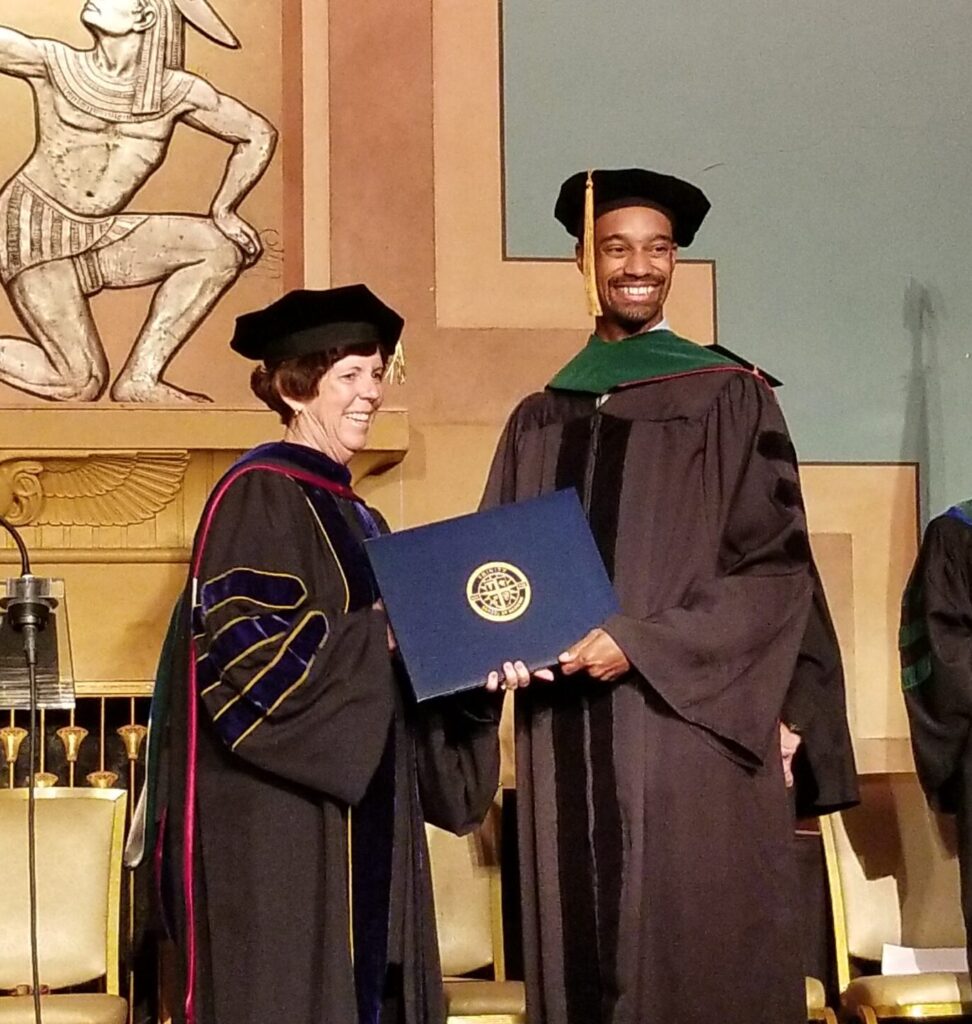
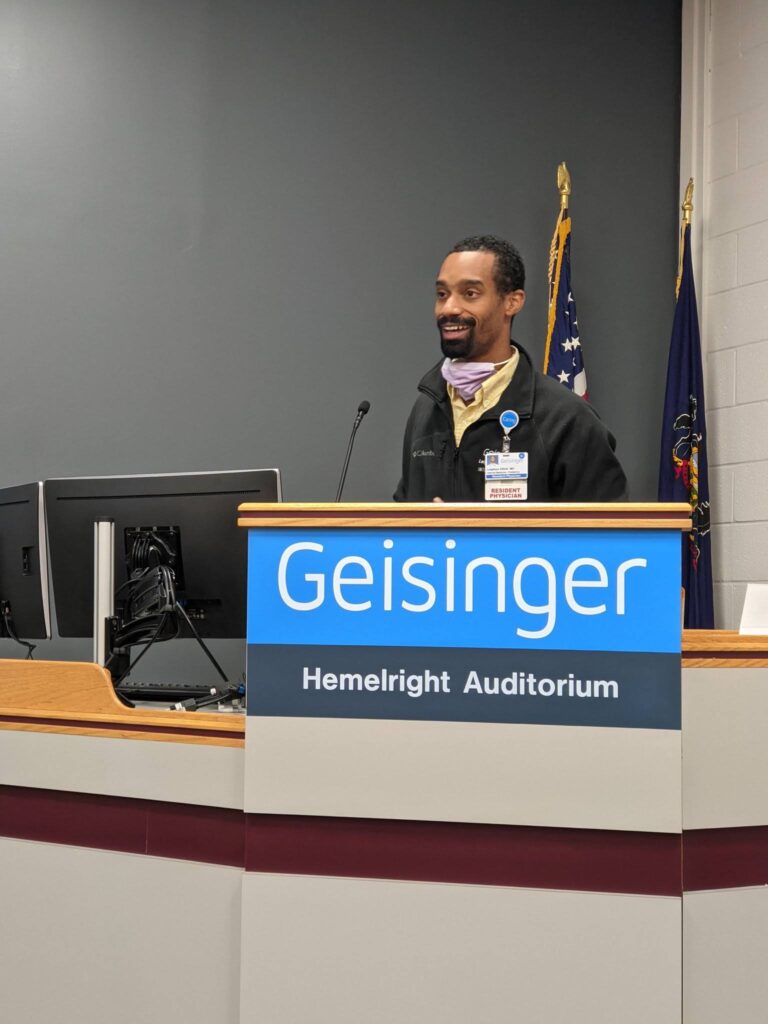
Dr. Elliott’s fellowship allowed him to combine his passions for oncology and research through work developing new innovative therapies for sarcoma in the adolescent and young adult population. He elected to remain at University of Florida after completing his fellowship, and he is now director of the Adolescent and Young Adult Cancer Program and an assistant professor of medicine and pediatrics.
The adolescent and young adult population comes from a variety of situations and backgrounds and faces many unique psychosocial challenges. Depression, anxiety and mental health struggles are more prevalent, and these patients often don’t have insurance or financial resources to pay for copays and treatment. In addition, clinical trial enrollment in this age bracket is low.
“Patients in this age range weren’t seeing any improvement in their survival in cancer. In fact, it was getting worse,” Dr. Elliott said.
People with cancer in this age group have an increased risk of secondary cancer and side effects. Following these patients throughout their survivorship is vital, and the adolescent and young adult oncology team at University of Florida is working to provide more comprehensive care that will address this population’s unique challenges, Dr. Elliott said.
“All these people on our team will help with research and improving the care of (adolescents and young adults) not just at University of Florida but across the country, across the world really,” he said. “There are not many other places in the country that do the kind of work we’re doing here, but thankfully the awareness is growing.”
As part of the university’s Pediatric Cancer Immunotherapy Initiative, Dr. Elliott and his lab team develop novel cancer therapies and then translate them into clinical trials. From there, they can see how the treatment is working, test different immune responses and make adjustments. Dr. Elliott’s focus area is improving care for locally advanced tumors, especially sarcoma, to decrease the morbidity of surgery. To achieve that, he’s using novel adjuvants, such as metal nanoparticles, that improve immune responses.
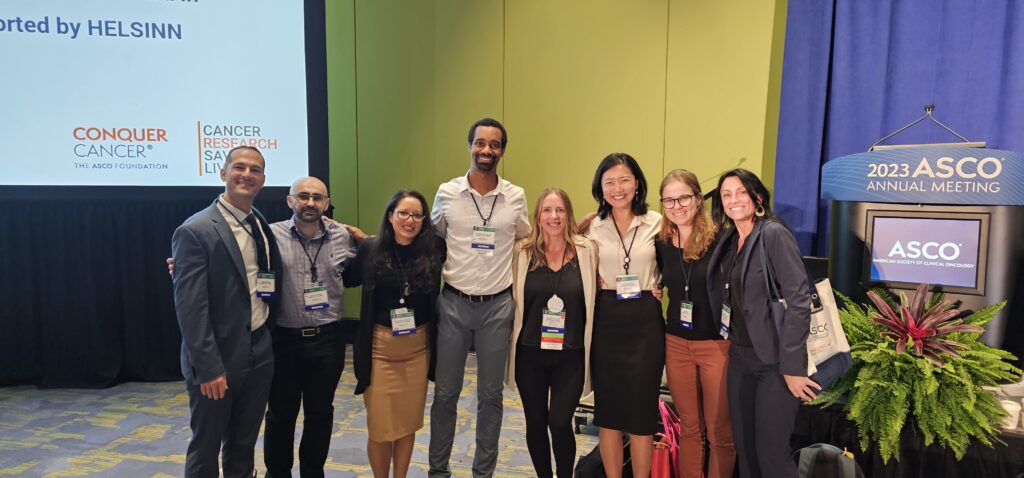
When it comes to sarcoma, surgeries to address locally advanced tumors can have high morbidity rates; chemotherapy doesn’t always shrink the tumors; and radiation can cause damage to surrounding tissue, Dr. Elliott said. In addition, sometimes initial treatment is successful, but the tumor returns in the same area. Immunotherapy, which trains the immune system to kill the cancer, provides another alternative.
“In my clinic, I see patients, and sometimes we don’t have any great options left,” he said. “Here’s some chemotherapy that I know is not going to work great, but we could try it. I don’t want to give these answers anymore to patients. I want to say, we have this therapy, and it could potentially cure you. What I love about the job is getting to work with patients, getting to work with people across the country, across the world, and we all have this similar mindset and motivation to cure these patients because we’re all seeing them regularly and thinking we have to do better.”
Looking to the future, Dr. Elliott would like to see the University of Florida create an adolescent and young adult department in the College of Medicine as well as a sarcoma institute. This would allow for more collaboration and national recognition in this work. His long-term goal is discovering how to cure sarcoma with immunotherapy, which he said is in closer reach than people might think.
“I just am incredibly grateful to all the people who have supported me from day one,” he said. “The work that is credited to me is not at all my work. It’s God working through me and my family to get it all done and putting the right people in place in my life to support me.”

